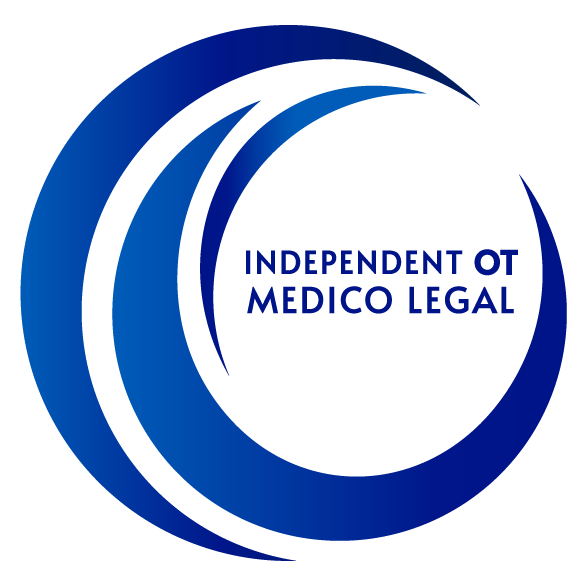Medical negligence cases often involve complex injuries that significantly impact a person’s daily functioning, yet quantifying these changes can prove challenging without proper assessment. When healthcare treatment results in unexpected complications or deterioration, establishing the true functional impact becomes essential for fair compensation outcomes.
Functional occupational therapy assessments for medical negligence provide objective evidence of how a person’s ability to perform daily activities, work tasks, and maintain independence has changed. These assessments compare pre-incident function with current capacity, offering courts and legal teams concrete data about the real-world consequences of substandard medical care.
Through detailed evaluation processes, our occupational therapists examine physical, cognitive, and psychological changes that affect everything from personal care to employment capacity. This comprehensive approach ensures that all functional impacts are documented, leading to appropriate recommendations for ongoing care, equipment needs, and support services that reflect the true cost of medical negligence injuries.
Understanding Medical Negligence in Australia
Medical negligence occurs when healthcare professionals breach their duty of care, resulting in patient harm. Under Australian law, claimants must prove four key elements to establish negligence.
The Four Elements of Medical Negligence
- Duty of care existed between healthcare provider and patient
- Breach of that duty occurred
- Harm or injury resulted from the breach
- Causal link exists between the breach and harm
Personal injury claims in medical negligence cases require substantial medical evidence to demonstrate both liability and damages. The complexity increases when claimants have pre-existing conditions that complicate the assessment of new functional limitations.
Australian courts apply the Bolam test, which evaluates whether medical treatment met accepted professional standards. This legal framework requires detailed documentation of functional changes to separate pre-existing conditions from negligence-related impairments.
Purpose and Importance of Functional Assessments
Medico legal assessments by occupational therapists focus specifically on quantifying functional impairment rather than establishing liability. We examine how medical negligence has altered a person’s ability to perform daily activities, work tasks, and maintain independence.
Key Assessment Areas Include:
- Activities of daily living (bathing, dressing, mobility)
- Instrumental activities (cooking, cleaning, shopping)
- Work capacity and vocational limitations
- Cognitive and physical functional changes
The assessment process involves comparing pre-negligence function with current abilities. We review medical records, GP notes, and specialist reports to establish baseline functioning before the negligent event occurred.
This comparison becomes crucial when pre-existing conditions are present. For example, someone with chronic back pain who experiences worsened symptoms following negligent surgery requires careful analysis to separate existing limitations from new functional impairments.
Occupational therapists document specific functional changes using standardised assessment tools and clinical observation. This objective measurement provides courts with concrete evidence of how negligence has impacted a Claimant’s function in daily life.
Legal Relevance of Occupational Therapy Reports
Medico legal reports from occupational therapists carry significant weight in personal injury claims because they translate medical diagnoses into practical functional consequences. Courts require this translation to calculate appropriate compensation for ongoing care needs and equipment requirements.
Legal Applications Include:
- Damages calculation – quantifying care costs and equipment needs
- Future planning – projecting long-term support requirements
- Causation evidence – linking functional changes to negligent treatment
Our reports provide detailed analyses to help provide insight into the need for domestic assistance, personal care support, and adaptive equipment. These calculations form the basis for compensation awards that cover ongoing needs resulting from medical negligence.
The objectivity of occupational therapy assessments strengthens their legal relevance. We use standardised tools and evidence-based assessment methods that courts recognise as reliable medical evidence.
Legal teams rely on our reports to negotiate settlements or present evidence during litigation. The detailed functional analysis helps lawyers demonstrate the real-world impact of medical negligence beyond medical diagnoses alone.
Assessment Process and Key Components
The medico legal assessment process involves three critical stages that establish the connection between medical negligence and functional impairment. Each component builds upon the previous to create a comprehensive picture of how the negligent event has impacted the claimant’s daily functioning and independence.
Reviewing Medical Records and Evidence
Prior to every medico legal assessment we conduct a thorough examination of all available medical evidence. This includes general practitioner records, specialist reports, hospital discharge summaries, and rehabilitation notes dating from before and after the incident.
The medical evidence review allows us to establish a clear timeline of the claimant’s health status. We examine pre-existing conditions, previous functional limitations, and any ongoing treatments or interventions.
Key documents we analyse include:
- Surgery reports and operative notes
- Physiotherapy and occupational therapy treatment records
- Diagnostic imaging results (X-rays, MRI, CT scans)
- Medication histories and prescription changes
- Allied health professional assessments
This documentation provides the foundation for understanding what functional abilities existed before the medical negligence occurred. We pay particular attention to any evidence of progressive conditions or degenerative changes that may complicate the assessment.
Comprehensive Functional Capacity Evaluation
Our occupational therapy assessment involves direct evaluation of the claimant’s current functional abilities across multiple domains. We use standardised assessment tools to provide objective measurements.
The evaluation covers physical, cognitive, and psychosocial functioning. We assess activities of daily living including personal care, domestic tasks, mobility, and community access.
Assessment areas include:
- Self-care abilities (bathing, dressing, grooming)
- Household management tasks
- Work-related functional capacity
- Cognitive processing and executive function
- Pain levels and fatigue management
We observe task performance in real-world environments where possible. This provides authentic data about how functional limitations impact the claimant’s actual daily routines and responsibilities.
Analysis of Pre-Injury Versus Post-Injury Function
The critical component of our assessment involves comparing functional abilities before and after the medical negligence event. We quantify the specific changes attributable to the incident rather than pre-existing conditions or natural aging processes.
This analysis requires careful consideration of multiple contributing factors. We differentiate between functional decline caused by negligent medical care and limitations that may have existed or developed independently.
Our analysis identifies:
- Specific functional losses directly related to the incident
- New care and equipment requirements
- Changes in independence levels for daily activities
- Impact on work capacity and earning potential
We document these changes with objective measurements and clinical reasoning. This analysis forms the basis for recommendations regarding ongoing care needs, rehabilitation potential, and support requirements.
Recommendations and Practical Outcomes
Functional OT assessments in medical negligence cases generate specific recommendations that address daily living challenges, equipment needs, and environmental modifications. These recommendations translate assessment findings into actionable solutions that support compensation calculations and improve quality of life.
Care Needs and Support Planning
Following assessment of functional limitations, our reports can help to develop comprehensive care plans that outline specific support requirements. These plans detail the level of assistance needed for personal care tasks, domestic activities, and community participation.
Personal care support may include assistance with showering, dressing, meal preparation, or medication management.
Domestic care recommendations cover household tasks that the person can no longer perform independently. This includes:
- Cleaning and maintenance requirements
- Shopping and errands assistance
- Garden care and property upkeep
- Transport to medical appointments
Care cost calculations factor in current service rates and project future needs based on the person’s condition trajectory. These projections account for potential deterioration or changing care requirements over time.
Home Modifications and Environmental Barriers
Environmental assessments identify barriers that prevent safe, independent functioning within the home. Our reports can help define specific home modifications that address mobility limitations, safety concerns, and accessibility issues.
Structural modifications commonly recommended include:
- Ramp installation for wheelchair access
- Bathroom renovations with accessible showers
- Handrail installation throughout the home
- Doorway widening for mobility equipment
Assistive Devices and Access to Technology
Technology recommendations address specific functional limitations identified during assessment. We match assistive devices to individual needs and capabilities, considering both current and future requirements.
Mobility equipment recommendations may include wheelchairs, walking frames, or mobility scooters. We specify features required such as seat cushions, adjustable components, or electric versus manual options.
Assistive technology solutions include communication devices, computer access equipment, and environmental control systems. Smart home technology increasingly supports independent living for people with complex disabilities, and in some instances reduces the need for attendant care.
Daily living aids cover a broad range of equipment:
- Kitchen modifications and adaptive utensils
- Bathroom safety equipment and shower chairs
- Bed and seating supports
- Dressing and grooming aids
Equipment recommendations include specific product models, suppliers, and replacement timeframes. We calculate ongoing costs including maintenance, repairs, and equipment upgrades over the person’s lifetime.
Need an OT Medico Legal Report for a Medical Negligence Claim? Contact Us Today
We understand that medical negligence cases require precise documentation of functional impacts to support a claim. Our Perth-based team at Independent OT Medico Legal provides comprehensive medico legal reports that clearly establish the relationship between medical events and current functional limitations.
Ready to get started? We accept referrals from both plaintiff and defendant lawyers across Australia. Contact us today.
Further Reading
Adynamia in Brain Injuries – It’s Not Just Laziness






